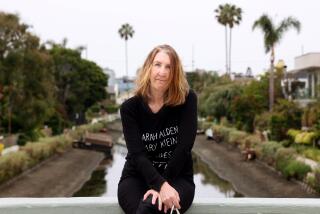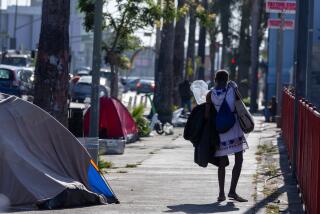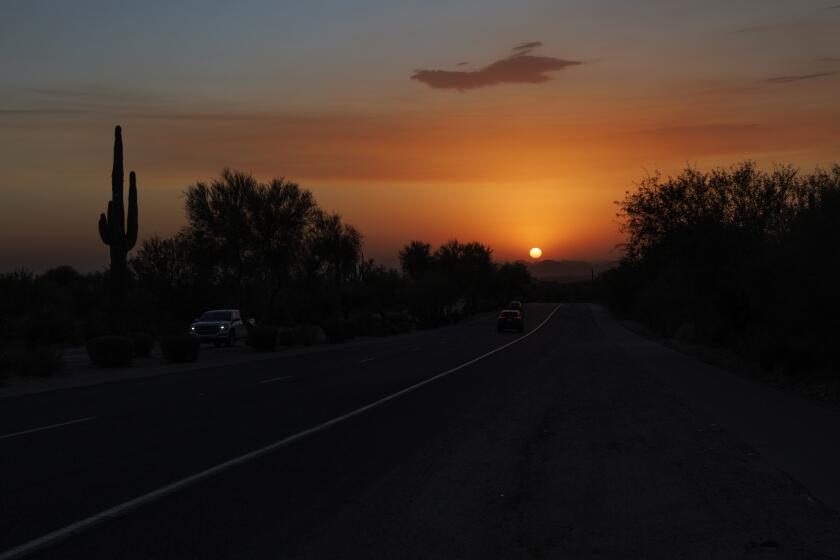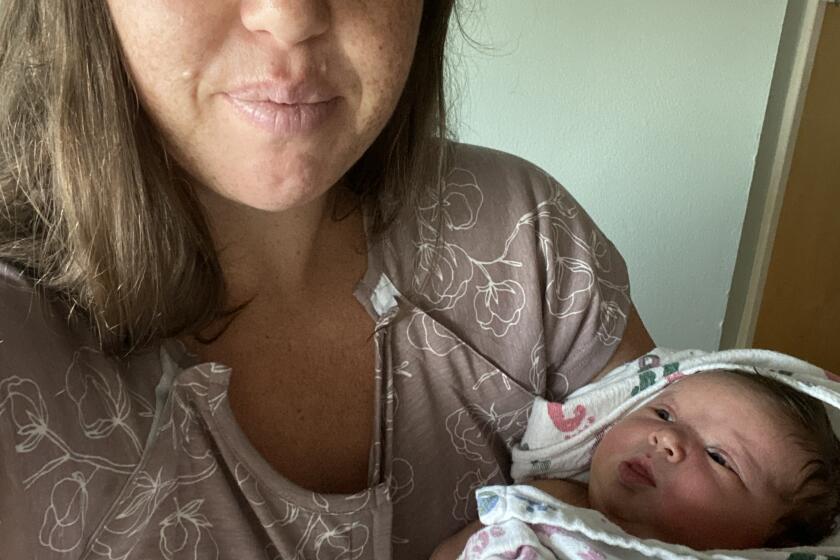Judge Removes Juror in Lucas Trial, Denies Press Request for Data
A San Diego Superior Court judge booted one of the jurors deciding the fate of convicted murderer David Lucas off the case Monday, replaced that juror with an alternate, and ordered the jury to begin its deliberations all over again.
In an added twist to the secrecy and unusual events that have accompanied the deliberations, Judge Laura Palmer Hammes also ruled Monday that the press does not have the right to see certain jury notes and transcripts of hearings about those notes, a decision a nationally recognized media lawyer said turned the law “on its head.”
Hammes brought the jury into her courtroom shortly before noon Monday and told them one juror had been excused for “legal cause.” The judge provided no further explanation.
Both prosecutor Daniel T. Williams and defense attorney Steven E. Feldman said Monday afternoon that they could not elaborate on the reason Hammes dismissed the juror.
Hammes told the jury after making the replacement that deliberations were to begin anew. Jurors left the downtown courtroom about 3 p.m. Monday without a decision on the sentence.
The original jury began deliberating last Monday on whether Lucas, 34, a carpet cleaner from Spring Valley whom it convicted June 21 of three murders and one attempted murder, should be sentenced to death or to life in prison without parole.
A Formal Request
Last Tuesday, the jury sent Hammes a note saying it was deadlocked. That note was read in open court, and Hammes told jurors to resume deliberations, which they did Wednesday.
On Thursday afternoon, a lawyer for the Copley Press, which publishes the San Diego Union and Tribune, made a formal request that Hammes make public other jury notes as well as transcripts of hearings the judge had with prosecutors and defense lawyers about the notes.
On Friday morning, the lawyer, Marilyn Huff, passed her own note to Hammes asking that any verdict or dismissal of jurors be announced in open court. That afternoon, Huff made another more formal request objecting to the “secret proceedings”--the notes and hearings--and asking for an answer Monday.
Hammes’ answer, provided Monday morning, was a four-page order. She said any verdict or dismissal would be open to the press and public but denied access to the contents of what eventually were four other notes and the transcripts.
In making the ruling, Hammes said deliberations depended on jurors discussing only the jury instructions she gave them. Access to newspapers or television might give jurors a clue about instructions suggested by the lawyers but not used, and that possibility outweighed the public interest in knowing the contents of the notes and hearings, she said.
Hammes conceded she had ordered jurors not to read or watch anything on the case. But she said jurors “may easily and inadvertently” learn something they shouldn’t.
“If you follow her logic, why couldn’t we at a minimum find out the content of the notes?” Huff said Monday afternoon. “How in the world could that affect jury deliberations? They already know what was in their notes. Similarly, whatever she said in response to that-- they already know that.”
John E. Carne, an Oakland attorney and media specialist, noted that Hammes relied in her decision on a 1984 U. S. Supreme Court finding that court cases are presumed to be open to the press. The decision in that case, for which Carne wrote a friend-of-the-court brief, said proceedings could be closed only in “the most unusual circumstances,” he said.
Alternatives Ignored?
Beyond the fact that the Supreme Court went on to rule that the press did have access to the proceedings at issue in the 1984 case, Carne said “the standards as this judge has interpreted them in this case would be present in every case, and every defendant would be able to make the same showing that’s been made here.
“The general principle of open except in the most unusual circumstances would be turned on its head and closure would be routine,” Carne said.
Before ordering closure, Carne said, Hammes should have considered alternatives, including sequestering the jury.
“By sequestering the jury for a few days you could protect everyone’s constitutional rights,” he said. “Here what the judge has done is take the constitutional rights of the press and public and weigh them against the convenience of jurors in not being sequestered. I don’t think convenience is an adequate basis for suspending anyone’s constitutional rights.”
Lucas was convicted of first-degree murder in the Nov. 20, 1984, death of University of San Diego student Anne Swanke, 22, of San Carlos, and the killings of Suzanne Jacobs, 31, and her 3-year-old son, Colin, both of Normal Heights, on May 4, 1979.
Lucas was also found guilty of attempting to murder Jodie Santiago-Robertson, 34, of Seattle, in a June 8, 1984, attack.
More to Read
Sign up for Essential California
The most important California stories and recommendations in your inbox every morning.
You may occasionally receive promotional content from the Los Angeles Times.










